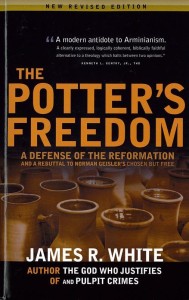 Through the use of a short story, I’d like to give you a glimpse into why common grace should amaze us.
Through the use of a short story, I’d like to give you a glimpse into why common grace should amaze us.
The story concerns a young Christian lady of 18 years of age in York, England. Born in Malta, of Irish parents, she was engaged to be married to a bright young man in the British military. The plan was that after the war was over, they would both serve the Lord as missionaries together, wherever He would lead them to go.
Sent over to France on D-Day, June 6, 1944, the young man was thrust into the battle for the city of Caen in Normandy, France. Tragically, just weeks afterward, on July 10, 1944, he was killed by one of the enemies’ bullets.
On hearing the news of her fiance’s death, the young lady was obviously devastated. Grief filled her heart. While attending church services in York for the next several months, she would hear dramatic testimonies of Divine protection, as loved ones returned home recounting the stories. All of these returning soldiers were protected from imminent danger. Many of these soldiers were extremely conscious of the Lord’s direct intervention in keeping them alive. And yet, the young lady had to live on knowing that the man she loved was not coming home.
Question after question plagued the young lady’s mind. Nothing that was said to her seemed to ease the pain and grief. And those hostile, haunting questions continued relentlessly.
One day, she rushed into her bedroom and flung herself down on the bed in great grief, as she often did. Then something very dramatic and life-changing happened. The Lord Himself appeared to this young lady. The brightness of His glory filled the room. He didn’t say a word. But in that moment, He stretched out His hand to her. She was totally caught up with the look in His eyes. She beheld the greatest love and compassion in the world. All her questions subsided as He smiled at her. Her heart’s cry was answered by one look into His eyes, full of unspeakable love.
The young lady very rarely speaks of this incident. However, when she does, usually only with close family and friends, tears well up once again at the grace she found in the face of Christ.
The story continues. At the same time, a Welsh military man was stationed in the same city of York in England. Brought up as a Roman Catholic, this young man had a dramatic conversion to Christ while serving in the British army in Gibraltar. In understanding the Gospel of Christ, this young man came out of the Roman Catholic Church system, facing the hostility of his family in doing so, and then trained to serve the British forces as a military chaplain.
Very much an Evangelist, this young man saw countless men come to Christ while serving in France and Belgium. For an eighteen month period, the numbers of soldiers he saw professing faith in Christ numbered in the hundreds every week.
One day, this young man was preaching in the city of York, and his eyes fixed on a certain young lady – the lady in our story. The two began to court each other and married soon after.
Years of married life passed and the hope of having a child grew stronger and stronger. How they wanted a child! Yet time was marching on.
Seventeen years of marriage came and went and no child was forthcoming. Just when it looked like all hope was gone, the young lady became pregnant. What joy must have filled the home with this dramatic news!
Two weeks before due date, the baby was coming. Complications ensued, with the afterbirth coming first, and the mother losing a great deal of blood. The mother was not doing at all well and the little baby was fighting for its life. Once born, the little one was whisked away into an oxygen tent where every gasping breath was a severe struggle.
Years later, the father wrote the following words: “I remember when I was called to the hospital where my son lay near to death. When he saw me, he reached out desperately towards me. I could do nothing. He was in an oxygen tent. The doctor gave me a knowing and sympathizing look and shook her head. The lad was dying.”
He continued, “I found a corner where I prayed. I thanked God for the joy that boy had brought into my life, for the privilege of having responsibility for his welfare, be it but for a short while. I told God how much that child meant to me and added, ‘but really he belonged to You all the time. Lord I commend him to your safe keeping. He means more than life to me Lord, but though You take him, I’ll love You still and will praise You all my days. That, I learned many years later, was a sacrifice of praise.’” Continue reading

